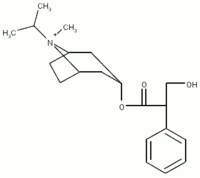Clinical Question
Do oral or parenteral corticosteroids improve clinical outcomes in patients with an acute exacerbation of chronic obstructive pulmonary disease (COPD)?
Evidence-Based Answer
Systemic corticosteroids improve symptoms of acute COPD exacerbations at three days and reduce the likelihood of treatment failure. There is no evidence that they reduce mortality or prevent recurrence at 30 days, but the existing studies may be too small to detect such a benefit. Adverse effects are common but generally are not serious.
Practice Pointers
This Cochrane review updates an earlier meta-analysis with two new studies. Although systemic steroids are widely used for the treatment of acute COPD exacerbations, the authors stress that it is important to know the magnitude of their benefit and the extent of associated side effects. The question of whether oral or intramuscular steroids are more effective was not addressed.
Four of the studies in this analysis involved oral prednisone with an initial dose of 30 to 60 mg tapering over nine to 14 days; in a fifth study, high-dose oral prednisone (2.5 mg per kg) was compared with a moderate dose (0.6 mg per kg). In studies of intravenous methylprednisolone (Solu-Medrol), a variety of dosing regimens were used, from a single 100-mg dose to 72 hours of methylprednisolone followed by a 57-day prednisone taper.
Despite the differences between studies, the review authors were able to combine the results from seven studies of treatment failure and nine studies of mortality. Systemic corticosteroids reduced the likelihood of treatment failure (17 versus 28 percent, P < .0001, number needed to treat = 9), when treatment failure was defined as hospital admission or return to the emergency department. Two studies looked at longer-term treatment failure as measured by hospital admission rates in the 30 days following treatment. Although researchers found no significant difference between steroid and placebo groups (11 versus 15 percent, respectively), these studies were too small for a clinically important difference to be evident, if one existed. There also was no difference in short-term mortality rates, which were approximately 4 percent in both groups (n = 910). Respiratory symptom scores at 72 hours were significantly more likely to be improved if patients received steroids. However, adverse events were common; the number needed to harm was 7 for any adverse event.
In addition to steroids, albuterol (Ventolin) should be used for bronchodilation because of its short onset of action. Ipratropium bromide (Atrovent) may be added. Antibiotics also should be considered for exacerbations that are not clearly triggered by viral infections. (1)
Wood-Baker RR, et al. Systemic corticosteroids for acute exacerbations of chronic obstructive pulmonary disease. cochrane Database Syst rev 2005;(1):CD001288.
REFERENCE
(1.) institute for clinical Systems improvement. health care Guidelines. chronic obstructive pulmonary disease. 4th ed. Bloomington, Minn.: institute for clinical Systems improvement, 2004.
The series coordinator for AFP is Clarissa Kripke, M.D., Department of Family and Community Medicine, University of California, San Francisco. n
COPYRIGHT 2005 American Academy of Family Physicians
COPYRIGHT 2005 Gale Group



